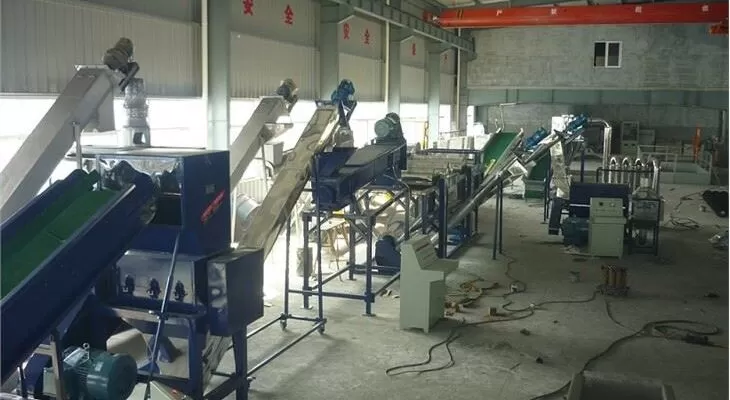Recycling old washing machines is not just about environmental responsibility; it’s a necessity for a sustainable future. As the CEO of Amige, a leader in plastic recycling machinery, I’ve seen firsthand the impact effective recycling can have on both our planet and our industries. Recycling these appliances involves dismantling, sorting materials like metal, plastic, and electronics, and then processing them for reuse. It’s a complex process, but with the right technology and approach, it can be incredibly rewarding.

Why should we care? Because each washing machine recycled means less waste in landfills, less need for new raw materials, and a significant step towards reducing our carbon footprint.
Why is Washing Machine Recycling Important?
The importance of recycling cannot be overstated. It’s not just about reducing waste; it’s about conserving resources and energy. For washing machines, which contain valuable metals and plastics, recycling offers an opportunity to recover these materials and reintroduce them into the production cycle. According to a report by the Global Recycling Foundation, recycling metals can save up to 74% energy compared to the energy needed to produce them from raw materials
What Are the Challenges in Washing Machine Recycling?
The primary challenge lies in the appliance’s composition. Washing machines are made from a variety of materials, including steel, aluminum, copper, and different types of plastics. Each material requires a different recycling process. Additionally, washing machines contain hazardous substances like refrigerants and oils, which must be handled with care. The logistics of collecting, transporting, and processing these bulky appliances also add to the challenge.
How Do We Overcome These Challenges?
At Amige, we’ve developed a series of innovative solutions to tackle these challenges head-on. By using advanced shredding and separation technologies, we can efficiently dismantle washing machines and sort their components for recycling. We also partner with logistics companies specialized in handling bulky items to streamline the collection and transportation process. Through collaboration with regulatory bodies, we ensure that all hazardous substances are safely removed and disposed of.
What Role Does Technology Play in Recycling?
Technology is the backbone of effective recycling processes. For instance, our plastic crushers and shredders are designed to handle the tough plastic components of washing machines, breaking them down into small, recyclable pieces. Similarly, our metal processing equipment can separate and prepare metals for melting and reuse. These technological advancements not only increase the efficiency of recycling but also make it more cost-effective.
Can Recycled Materials From Washing Machines Be of High Quality?
Absolutely. One of the common misconceptions is that recycled materials are of lower quality than new ones. However, with modern recycling technologies, materials like metals and plastics can be recycled without losing their integrity. For example, the steel recycled from washing machines can be used to produce new appliances, construction materials, or automotive parts, with no compromise on quality .
What Can You Do To Help?
Recycling starts with you. If you have an old washing machine, don’t just leave it to collect dust or send it to a landfill. Contact your local recycling center or look for companies like Amige that specialize in appliance recycling. By choosing to recycle, you’re not only disposing of your appliance responsibly but also contributing to a circular economy that benefits everyone.
Conclusion
Washing machine recycling is more than just a good deed for the environment; it’s a vital process that conserves resources, saves energy, and supports sustainable development. With the right approach and technology, we can transform this challenge into an opportunity. Let’s work together to make recycling a standard practice for all.
That’s the essence of our mission at Amige. Through innovation, collaboration, and a bit of wit, we’re tackling the challenges of recycling head-on, ensuring a greener planet for future generations.
